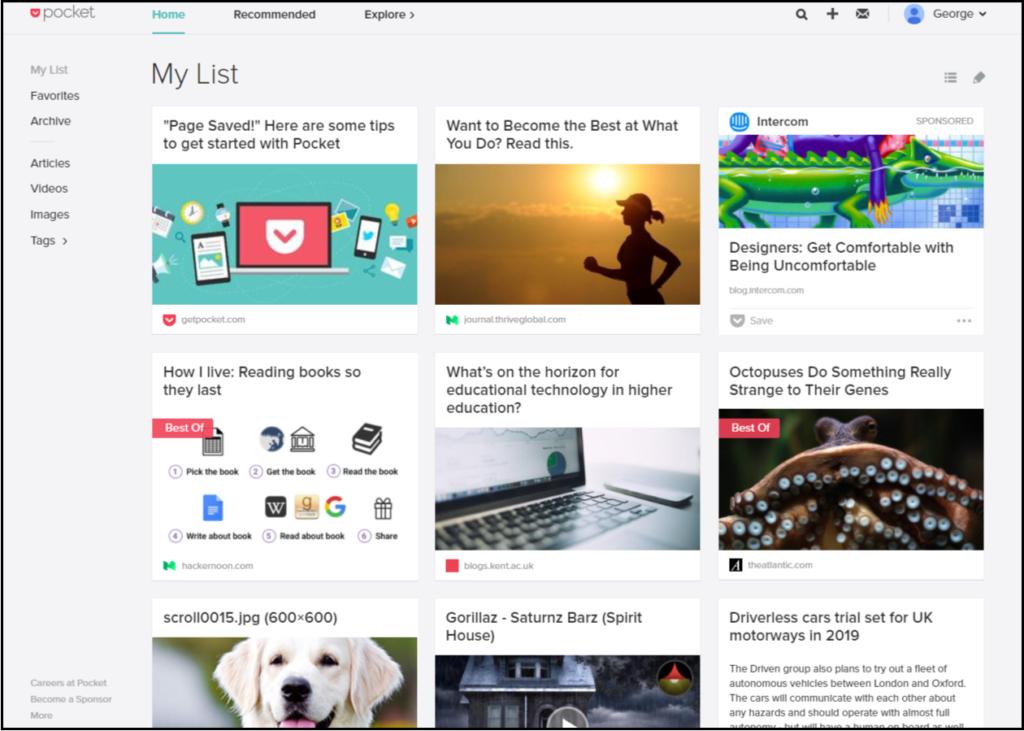This week we are introducing a useful tool for organising and collating interesting articles you find on the web.
Pocket lets you save articles, videos or images you find online in one place. You can then access them from any of your devices at a more convenient time on or offline.

Pocket allows you to:
- Save interesting articles, videos and images from around the web, then access them later through your pocket account on any of your devices.
- Read saved articles offline. This can be useful when in areas with no internet connection or if you wish to read articles without the fear of getting distracted online.
- Share articles using Pocket’s ‘Send to Friend’ feature, this can enable collaborative research on projects and assignments.
- Find ‘recommended features’ based on articles you have been saving. . So if you’re studying a certain topic this can be a good way to find related articles.
- Read free of distractions. Saved articles have unnecessary formatting and clutter such as ads, sidebars and comments stripped away, making the article far more readable. This can enable much easier focus on the content itself.
- Assign custom tags to your saved content allowing you to easily organise and locate articles that deal with a certain topic.
- Listen to saved articles on a iOS or Android device using the built in Text-to-Speech function. This can be useful for accessibility reasons or listening whilst exercising or on the go.
- Follow other people on Pocket. This means you will receive articles they have recommended, allowing you to get curated content from specialists or leaders in a certain field.
To explore the features of Pocket see this Getting started guide.
Is it free?
Pocket is available in both free and premium versions. The free version will be more than sufficient for most users. However if you use the tool and want more from it then Pocket gives you the option to upgrade to the premium version for $4.99 per month (or £3.90 at the current exchange rate). The premium version enables you to access additional features such as using full text searches through your content and adjustable layout options.
Will it work on my device?
Pocket works on Android, iOS, Windows and web browsers such as Chrome and Firefox.
Where can I get the app?
- Google Play (for Android)
- iTunes (for ipad/iphone)
- Firefox Extension
- Chrome/Safari/Microsoft Edge/Opera Extension
Ideas for using Pocket in learning and teaching
- Using Pocket in the classroom to promote nonfiction reading.
- For research projects, if students need to collate material from a wide range of web sources they could organise them all using Pocket.
What are the alternatives?
Here are some alternatives to Pocket you may want to look at:
What next?
If you would like help with using Pocket or to discuss how this or any other digital tools could help you in your teaching or learning please get in touch with the TEL team.




[…] Read the full story by University of Sussex Technology Enhanced Learning Blog […]